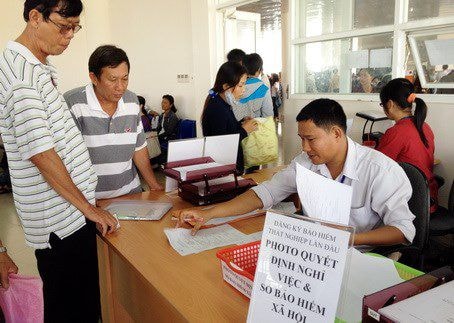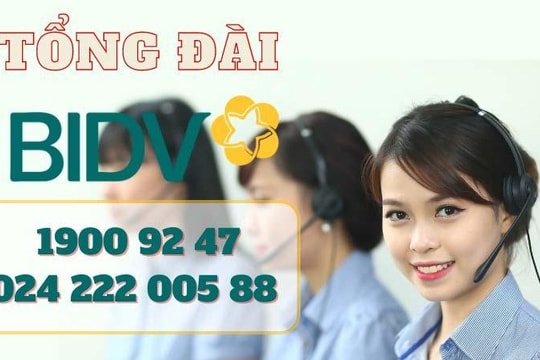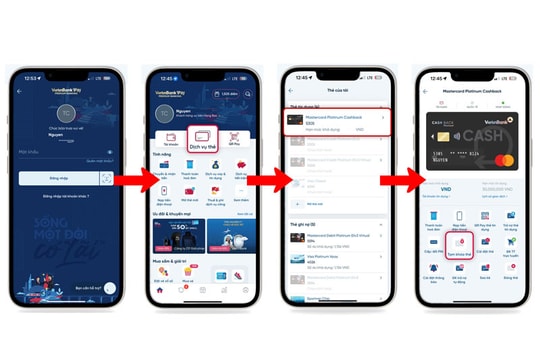The Supreme People's Court guides a number of contents on the implementation of the Law on Social Insurance.
(Baonghean) - To uniformly apply the provisions of the Law on Social Insurance and laws related to the field of social insurance, the Supreme People's Court requests Chief Justices of People's Courts at all levels and Heads of units under the Supreme People's Court to thoroughly disseminate the following contents in their agencies and units:
Competence to resolve social insurance disputes between employees, labor collectives and employers; Competence to resolve social insurance disputes between employees, employers and social insurance agencies; Regarding the rights of social insurance agencies regarding violations of social insurance laws by employers (evading social insurance payments, late payment of social insurance payments).
 |
| Insurance officials guide people through insurance procedures |
Regarding the authority to resolve social insurance disputes between employees, labor collectives and employers: According to Clause 7, Article 3 of the 2012 Labor Code: Labor disputes are disputes about rights, obligations and interests arising between parties in labor relations. Labor disputes include individual labor disputes between employees and employers and collective labor disputes between labor collectives and employers. Thus, labor disputes include 02 types: Individual labor disputes between employees and employers; Collective labor disputes between labor collectives and employers and the subjects of labor disputes must be the parties in the labor relations.
According to the provisions of Clause 2, Article 200, Point d, Clause 1, Article 201, Point c, Clause 1, Article 203 of the 2012 Labor Code, Article 31 of the 2004 Civil Procedure Code, disputes on social insurance between employees and employers, between labor collectives and employers are labor disputes and fall under the jurisdiction of the Court.
However, according to the provisions of Clause 1 and Clause 3, Article 205 of the 2012 Labor Code:
“1. Within 05 working days from the date of receipt of the request to resolve a collective labor dispute on rights, the Chairman of the District People's Committee must proceed to resolve the labor dispute.
3. “In case the parties do not agree with the decision of the Chairman of the District People's Committee or the time limit has expired but the Chairman of the District People's Committee has not resolved the matter, the parties have the right to request the Court to resolve the matter.”
Thus, when accepting and resolving requests for social insurance, the Courts need to note:
- In case the Chairman of the District People's Committee resolves the dispute but the parties do not agree with the decision of the Chairman of the District People's Committee or the Chairman of the District People's Committee fails to resolve it within the time limit prescribed by law, the parties have the right to request the Court to resolve the collective dispute over rights. In this case, the Court will accept and resolve it as a labor case.
- In case the Chairman of the District People's Committee resolves a dispute but the parties do not agree with the decision of the Chairman of the District People's Committee and file a lawsuit against the decision of the Chairman of the District People's Committee, the Court shall accept and resolve the case and determine that this is an administrative case.
Regarding the authority to resolve disputes on social insurance between employees, employers and social insurance agencies: According to the provisions of Clause 8, Article 18 and Clause 2, Article 20 of the Law on Social Insurance, employees and employers have the right to complain, denounce and file lawsuits on social insurance according to the provisions of law.
According to the provisions of Articles 118 and 119 of the Law on Social Insurance, employees and employers have the right to complain or initiate an administrative lawsuit in accordance with the provisions of this Law and the Law on Administrative Procedures against administrative decisions and actions of social insurance organizations when there is reason to believe that such decisions and actions violate the law on social insurance and infringe upon their legitimate rights and interests. When someone initiates a lawsuit against an administrative decision or action of a social insurance agency, the Court will accept the case and determine it as an administrative case.
The determination of the Court's jurisdiction over administrative cases shall be implemented according to the provisions of Articles 29 and 30 of the 2010 Law on Administrative Procedure; from July 1, 2016 (the effective date of the 2015 Law on Administrative Procedure), it shall be implemented according to the provisions of Articles 31 and 32 of the 2015 Law on Administrative Procedure.
Regarding the rights of the Social Insurance agency regarding violations of the Social Insurance law by employers (avoiding social insurance payment, late payment of social insurance premiums):
According to the provisions of Clauses 1, 2 and 3, Article 2 of the Law on Social Insurance, employees and employers must participate in compulsory social insurance. Acts of evading compulsory social insurance and unemployment insurance; late payment of social insurance and unemployment insurance; appropriation of social insurance and unemployment insurance contributions and benefits are prohibited acts as prescribed in Clauses 1, 2 and 3, Article 17 of the Law on Social Insurance.
According to the provisions of Clause 9, Article 22 of the Law on Social Insurance, the Social Insurance agency has the right to: Handle violations of the law or make recommendations to competent state agencies to handle violations of the law on social insurance, unemployment insurance, and health insurance.
Thus, from the effective date of the Social Insurance Law (January 1, 2016), the Court will not accept the petition of the Social Insurance Agency to claim social insurance money from the employer. For cases accepted before January 1, 2016 but not yet resolved, the Court will issue a decision to suspend the settlement of the case, return the petition and instruct the plaintiff to comply with the provisions of the Labor Code, the Social Insurance Law and the Law on Handling of Administrative Violations.


.jpg)




.png)
